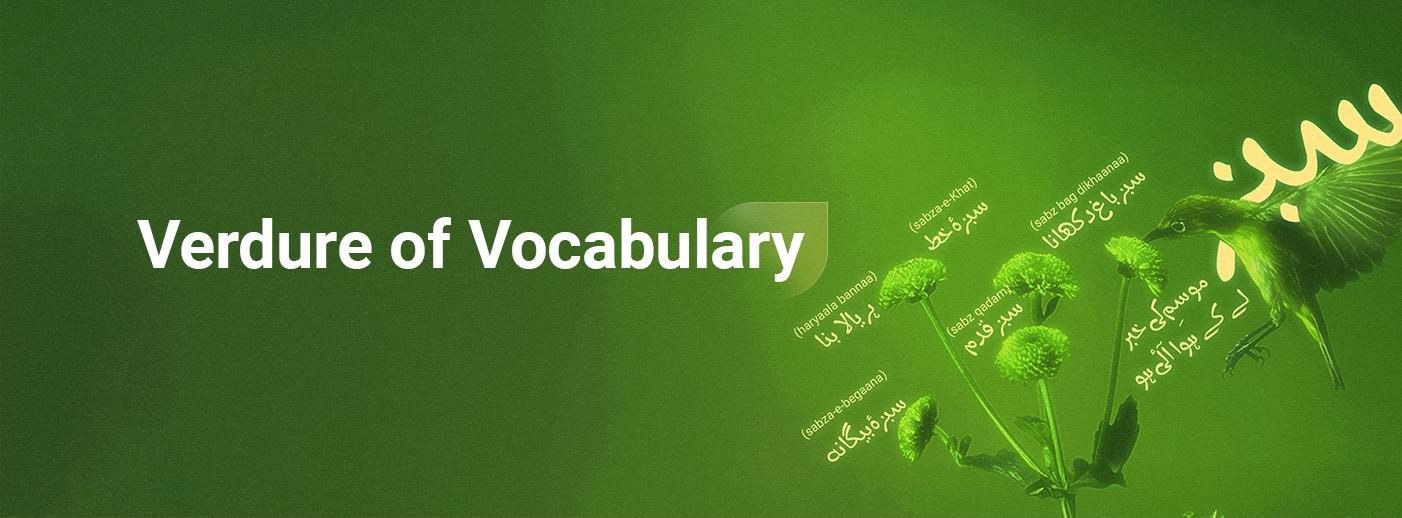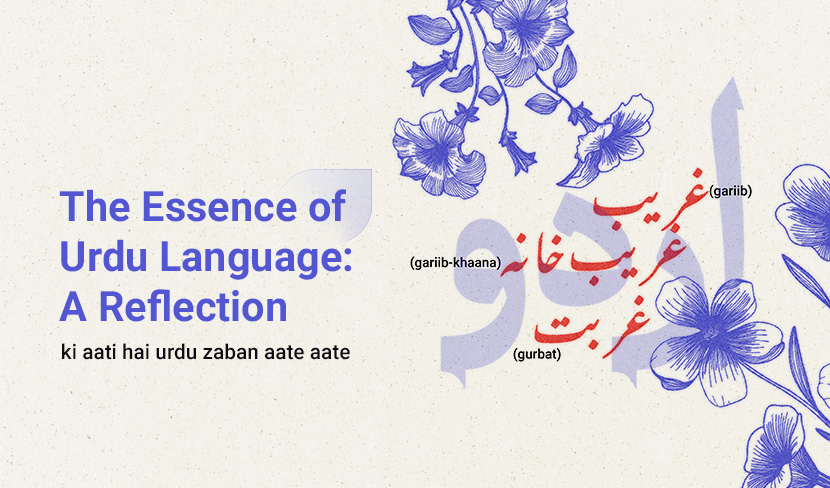Top searched
Saved words
khisyaanii billii khambaa noche
an embarrassed or ashamed person tends to vent his/her feeling by quarrelling
be-niyaaz
without want, free from want, wanting nothing, not in need, able to dispense, independent, carefree
Verdure of vocabulary

The range of vivid colours that adorn the world are one of the many marvels of nature. All these colours not only beautify the world but they play a symbolic role as well. In every culture, certain concepts, beliefs, biases and taboos are associated with different colours, which are evident in everyday language in the form of idioms, literature and poetry.
Urdu, being a rich language that has evolved within the cultural and linguistic melting pot of the Indian sub-continent is particularly interesting in this regard. Let's take the colour green (hara) ہرا, for instance. In Urdu, the Persian word,"سبز" (sabz) is also used for green colour, which is a familiar word in our daily conversations, like "سبزی" (sabzi) meaning vegetables.
The colour green is symbolic for freshness, fertility, abundance, greenery, and the season of spring or the monsoon month, as the proverb goes: "ساون کے اندھے کو ہرا ہی ہرا سوجھتا ہے". (saavan ke andhe ko haraa hii haraa suujhtaa hai) .Meaning that if a person loses their vision in the monsoon season, the colour green is the only colour they're able to visualize.
Green colour symbolizes the lush growth of plants and trees, and thus, it represents prosperity and progress. We use the phrase "ہرے بھرے رہو" to wish someone a happy and prosperous life. When a woman is expecting a child it is called, "گود ہری ہونا" (god harii honaa). But an idiom "طبیعت ہری کرنا" (tabii'at harii karnaa) means to insult or hurt someone.
The idiom" زخم ہرا ہونا " (zaKHm haraa honaa) employes the symbolism of green quite differently. It means an old wound has reopened or a past pain has resurfaced. It may also be related to green colour being symbolic of freshness, indicating how an old wound has become fresh, and therefore is now hurtful instead.
Let's not forget a pleasant expression: in Indian weddings especially in northern India, the groom and bride are addressed as "ہریالا بنا" (haryaalaa bannaa) and "ہریالی بنو"(haryaalii banno). There is a famous old film song "میرے بنےکی بات نہ پوچھو میرا بنا ہریالا ہے" (mere banne kii baat na puucho meraa bannaa haryaalaa hai)
The word "سبز" (sabz) is often associated with pleasant things, like "سبزہ زار" (sabza zaar) (meadows)سرسبز (sar-sabz) also connotes that something is flourishing.
sarsabz dil kii ko.ii bhii KHvaahish nahii.n hu.ii
vo hai zamiin-e-dil jahaa.n baarish nahii.n hu.ii
Another idiom that employs the imagery of the colour green is: "سبز باغ دکھانا" (sabz bagh dikhaanaa) (to show someone a green garden) means to deceive someone with false promises.
There are two words " سبزۂ بیگانہ " (sabza-e-begaana) and "سبزۂ خط" (sabza-e-Khat) that have been lavishly employed in Urdu poetry. سبزۂ بیگانہ " refers to grass growing on itself, or wild grass or weeds and "سبزۂ خط" refers to the light green color that appears on a young man's face when his beard and mustache starts to grow.
The word sabz also has a negative connotation, like "سبز قدم" (sabz qadam) (green foot), meaning ill-omened. It is a common belief that green eyed people are deceitful in nature. Such a people are also referred to as (sabz chashm)" سبز چشم"
The colorful journey isn't over yet! There's still more to explore and discover in this vibrant world of colors, where words and phrases are intertwined with hues and shades, waiting to be uncovered."
Delete 44 saved words?
Do you really want to delete these records? This process cannot be undone






